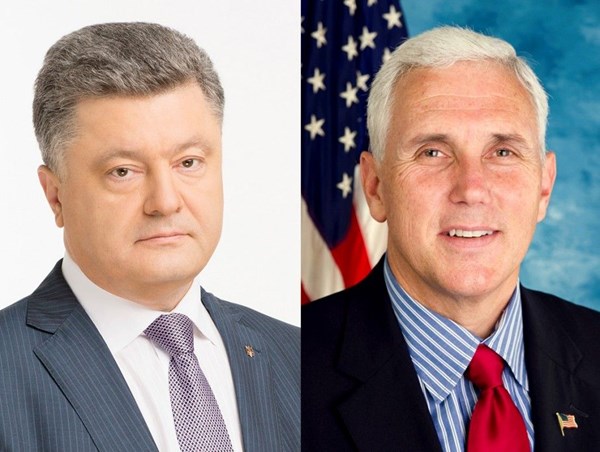Poroshenko discusses war in Donbas with US Vice President
President Petro Poroshenko had a telephone conversation with U.S. Vice President Michael Pence.
He brought the U.S. Vice President up to date on the current situation in the Donbas and the continued aggressive actions of Russia-controlled militants who continue to violate the complete ceasefire announced yesterday, the website of the head of state said. In connection with this, Poroshenko stressed the importance of continued pressure on Russia to ensure proper implementation of the security aspects of the Minsk agreements. He expressed appreciation for U.S. President Donald Trump’s recent decision to extend appropriate sanctions against Russia for another year.
Pence stressed the importance of maintaining sanctions against Russia to the full implementation of the Minsk agreements as well as the return of the Crimea to Ukraine.
The conversation also included a discussion of further steps aimed at a peaceful settlement of the situation in the Donbas, and the prospects for the deployment of an effective UN peacekeeping mission were considered.
Poroshenko expressed his gratitude to the United States for consistent support of Ukraine in implementing large-scale internal reforms as well as providing military assistance.
He stressed that the provision of American defensive weapons is an important positive signal for other partners of Ukraine and a clear warning to Russia, considering it aggressive actions.
Pence noted that the United States will continue to support Ukraine in its struggle for territorial integrity and sovereignty. He also noted Ukraine’s progress in implementing reforms – in particular, the creation of an Anti-Corruption Court.
Poroshenko and Pence mentioned the active development of bilateral trade and economic cooperation, in particular the launch of a large-scale project with General Electric for the purchase of American locomotives, as well as the supply of American coal to Ukraine.
The conversation also included the topic of scheduling of further bilateral contacts at the highest level this year.
